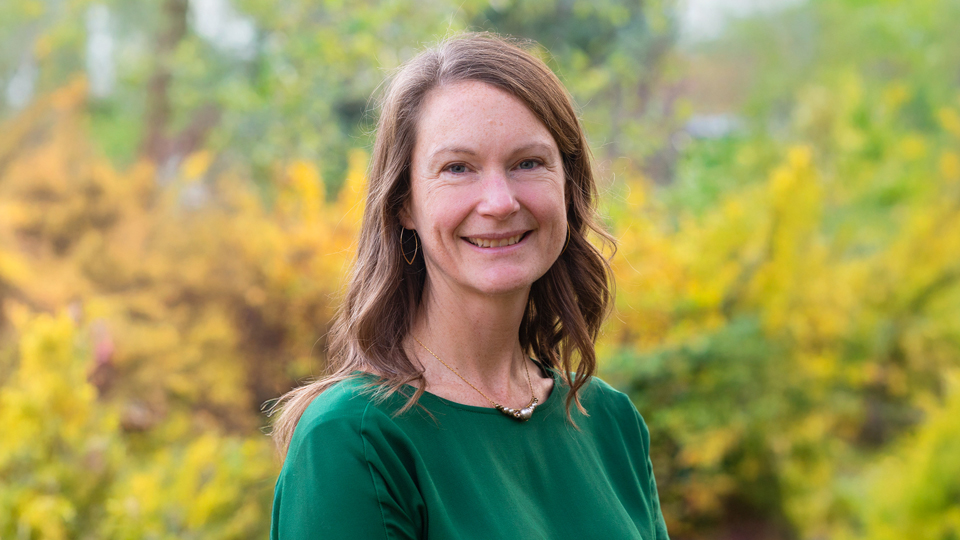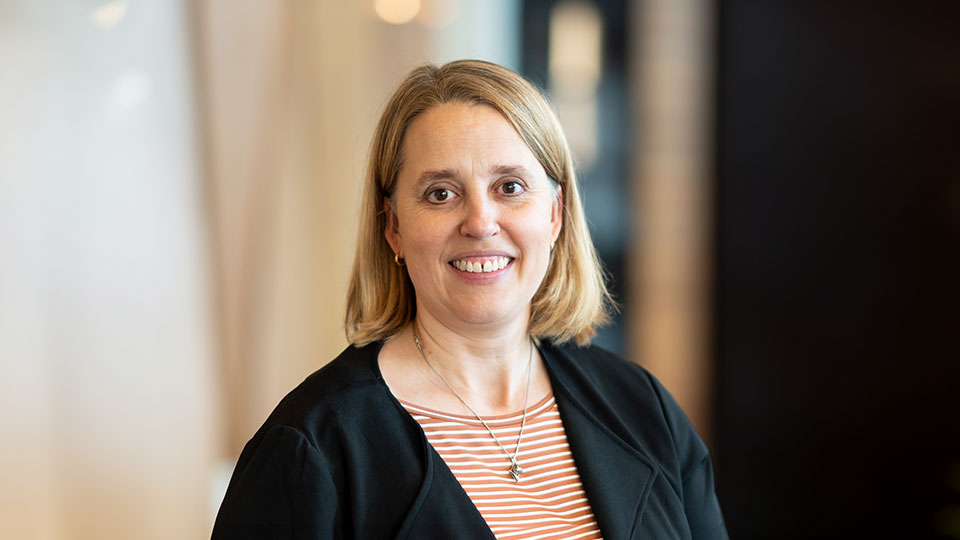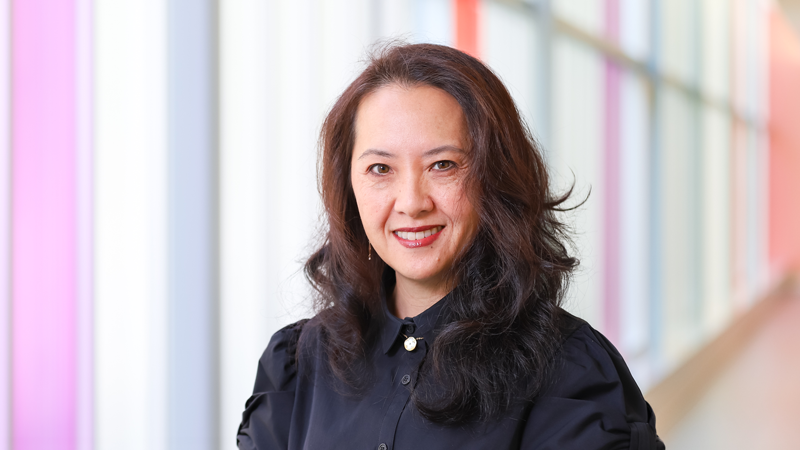
Dr. Cary Cuncic was raised in northern Ontario and she obtained her Bachelor of Science degree from the University of Waterloo. She went on to earn a Master of Science degree from the University of Calgary then worked in Montreal and overseas prior to attending McMaster University for medical school. An Internal Medicine residency eventually brought her to Vancouver.
Dr. Cuncic stayed in Vancouver after her core residency, going on to complete a fellowship in general internal medicine, a Clinical Education Fellowship at UBC’s Centre for Health Education Scholarship and a Master’s degree in Medical Education from the University of Dundee. She has held a number of leadership positions in the faculty. She met her husband during her first year of residency and they currently live in East Vancouver with their three boys, Newfoundlander dog and orange tabby cat.
Recently, Dr. Cuncic was appointed Regional Associate Dean, Vancouver Fraser. In this position she will play a key role in developing UBC’s academic health vision in the Vancouver Fraser region.
Who inspires you and why?
So many people in British Columbia have inspired me during the COVID-19 pandemic. Our front line essential workers such as grocery store clerks, bus drivers and retail warehouse employees put their lives on the line for us. Hospital employees and healthcare workers who stepped up, many out of their comfort zone, to keep the hospitals running and care for patients with COVID-19 continue to inspire me. These individuals include faculty and learners. Some medical residents volunteered to help on the COVID hospital wards and a number of medical students volunteered to do contact tracing and vaccine administration. My friend took her daughter to get her COVID vaccine and it was administered by a medical student!
The strategic work done by all of the UBC teams to continue educating medical and health professional learners during the pandemic was incredible. Our health authority leaders communicated clearly and regularly and were always available to listen to healthcare workers’ concerns. Dr. Bonnie Henry inspired me by her calm leadership, empathy, and communication. I also admire our premier for allowing Dr. Henry to be the face of COVID information for the province. I think that we British Columbians benefited from this.
For you, what makes UBC different?
We are the only medical school in the province and therefore have an enormous responsibility to the people of British Columbia. It is essential that we continue to build meaningful partnerships with health authorities and other provincial universities so that we can further pursue meaningful collaborations and thoughtful engagement that will benefit communities across the province.
Best piece of advice:
Once I was given feedback to not get caught up in defending my actions but rather, to think about validating the experience of others. This insightful advice has been incredibly helpful. It is a work in progress for me to talk less and listen more.
First job:
I had a few different jobs growing up in northern Ontario. I worked at McDonald’s, I cleaned rooms at the Holiday Inn and I was a server at the Husky Truckstop.
Secret talent:
I can waterski. My extended family all rent cabins on a lake in northern Ontario just outside of Iron Bridge for a week each summer and last summer I tried waterskiing. I remember yelling, “Can we make this a short one!?,” but I think my voice was drowned out by the boat motor. For those who know me well, yes, it was a very loud motor! The trick to being impressive, was that I went waterskiing on the last day of our vacation, so no one in my extended family saw that I could not walk or raise my arms for three days after that.
What are your main goals or aspirations?
One goal is certainly a shared goal, and that is ensuring that our learning and work environments are places where faculty, staff and students can thrive. This means that these environments are supportive and free of discrimination in alignment with the Faculty’s Strategic Plan.
I’m also excited that starting next year, medical students in the Vancouver-Fraser Medical Program (VFMP) will be able to join the new Fraser Medical Cohort, which will allow them to do most of their clinical training in the Fraser during their third year. Students in this cohort will not only find excellent mentorship but they’ll also make close connections to the communities in the region where they would like to one day practise.
In addition, I worry about the effect that climate change will have on health. Our undergraduate mission statement refers to caring for populations with unique healthcare needs and climate change exacerbates the gaps in health. This past summer, we were overwhelmed by patients in the emergency department due to health issues that occurred during the heat dome. I was so pleased to read that Vancouver Coastal now has a medical director of Planetary Health and UBC is home to a Planetary Healthcare Lab. I am inspired by my healthcare colleagues who attended the “Code Red for Humanity” climate change at the BC Legislature on Nov. 4.
How do you like to recharge?
I like to relax and have laughs with friends and family over a good meal.
Favourite spot in BC?
There are so many! I remember being a medical student in Vancouver for an elective course and walking along the seawall by Stanley Park, thinking that I never wanted to leave.
Published: November 2021


